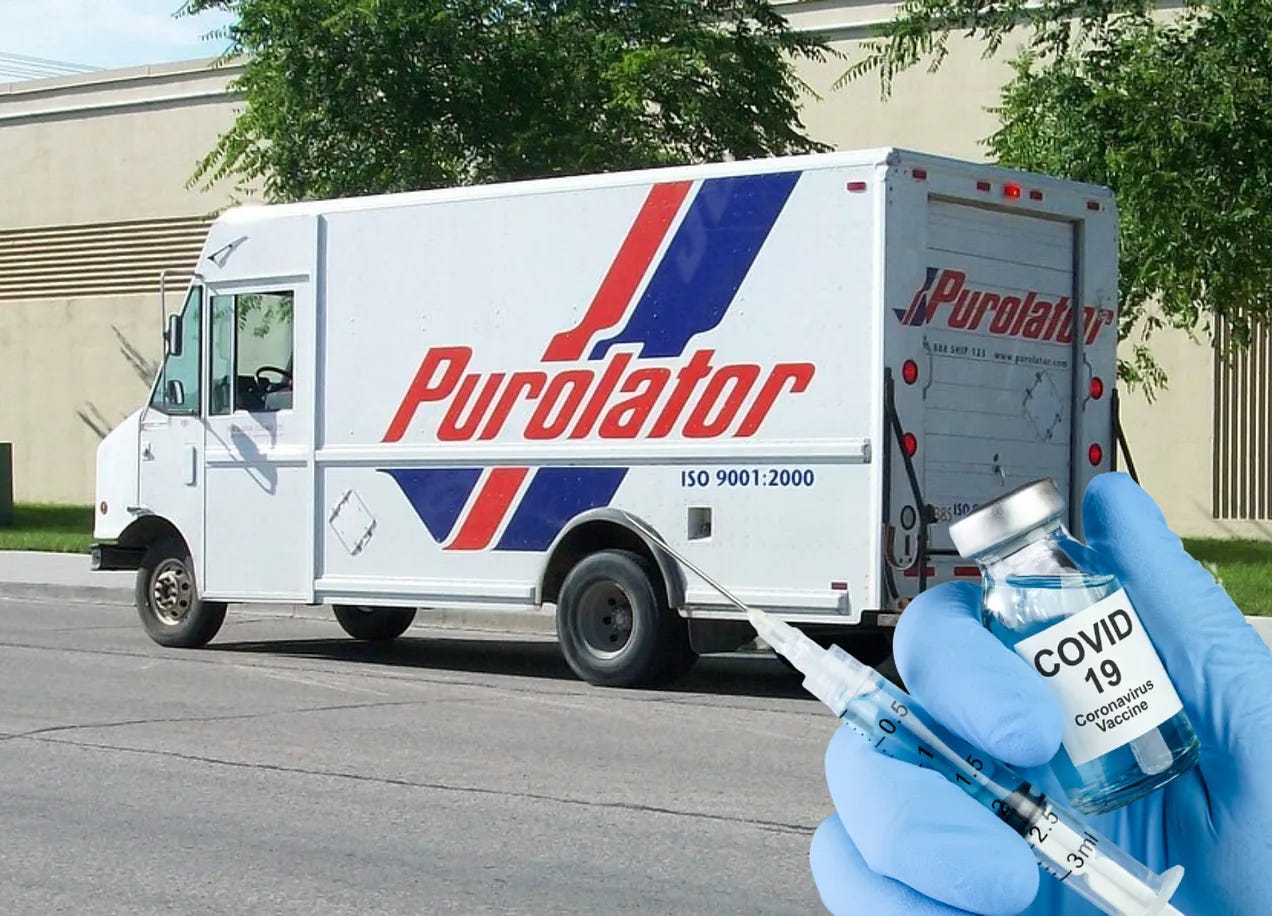B.C. Supreme Court sides with arbitrator: Purolator ordered to compensate workers who were suspended for refusing the COVID-19 vaccine
The Supreme Court of British Columbia has dismissed Purolator Canada Inc.’s judicial review of an arbitrator’s December 2023 ruling, upholding grievances filed by the Canada Council of Teamsters over the company’s COVID-19 vaccination policy. The decision, released on January 30, 2025, found that Purolator’s COVID-19 Safer Workplaces Policy (SWP) had become unreasonable after June 30, 2022, entitling affected employees to compensation for lost wages and benefits.
Purolator, a federally regulated logistics company, introduced the SWP in September 2021, requiring all employees and contractors to be vaccinated against COVID-19 or submit to regular testing. By early 2022, unvaccinated employees were placed on unpaid leave, and unvaccinated contractors had their contracts suspended. The Teamsters, representing Purolator’s unionized workforce, challenged the policy’s reasonableness through multiple grievances across Canada. Arbitrator Nicholas Glass was appointed to rule on the grievances filed by Teamsters Local Union No. 31 in British Columbia, leading to a lengthy arbitration process.
In December 2023, Arbitrator Glass’s 196-page ruling found that while the policy was reasonable at its inception and until mid-2022, it became unjustifiable as COVID-19 evolved. The key turning point was the emergence of the Omicron variant, which proved resistant to vaccines in preventing transmission. The arbitrator ruled that Purolator failed to demonstrate a continued workplace safety risk that justified keeping unvaccinated employees off the job.
Purolator sought judicial review of the arbitration ruling, arguing that the arbitrator applied an incorrect legal test and failed to properly weigh the company’s health and safety obligations. The company contended that the arbitrator misapplied the balancing of interests test established in KVP Co. and Irving Pulp & Paper Ltd., which weighs employer policies against employee rights. The company also argued that the precautionary principle, which allows health and safety measures to be upheld even amid scientific uncertainty, was not properly considered. Purolator further argued that the arbitrator wrongly assumed jurisdiction over grievances related to Purolator’s November 2022 vaccination attestation requirement, which led to further employee terminations.
B.C. Supreme Court Justice B. Smith rejected these arguments, concluding that the arbitrator’s reasoning was sound and aligned with existing legal principles. The court found that the arbitrator appropriately applied the balancing of interests test, concluding that by mid-2022, the policy’s impact on employees’ bodily autonomy and livelihood outweighed Purolator’s workplace safety concerns. The precautionary principle did not justify continuing the SWP after June 2022, given emerging scientific consensus that two-dose vaccination offered minimal protection against Omicron infection. The arbitrator had jurisdiction to consider the grievance over the vaccination attestation requirement, as it was directly linked to the original SWP dispute.
With the court upholding the arbitrator’s ruling, Purolator must now compensate affected employees for lost wages and benefits covering the period from July 1, 2022, to May 1, 2023.




Thanks for sharing and reporting. However, this actually isn't a win because of the reasoning: "found that while the policy was reasonable at its inception and until mid-2022, it became unjustifiable as COVID-19 evolved."
These measure and demands were and are never reasonable - so this jargon here doesn't set a good precedent.
The policy, of course, was never "reasonable".